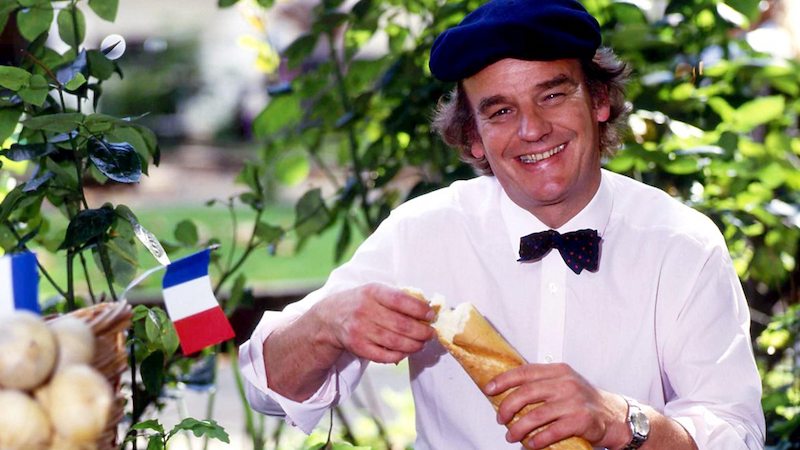From an early age, my grandparents tried to save me the pitfalls of a lower middle class English existence by initiating me into the joie de vivre of France. Across the channel I would be ferried, left to the continental sophistication in a Calais bistro some 20 minutes from the ferry terminal. There I would watch my grandfather scoff a bowl of moules and cheap rose and flirt with the waitress. My grandma would beam upon the scene. This was the first of many escapades to the continent, a saving grace for the mediocrity and dullness that stalks the English petit bourgeoisie.
We might like to joke about invading our oldest enemy et cetera, but culturally we revere and adore the French. But I still don’t understand the appeal. In my Erasmus year abroad, I sat in bilingual groups submerged in the slightly irritating subtext that everything French was slightly better. On holidays I would watch in horror as friends would willingly serve themselves up to the ritual humiliation of trying to speak French to the waiter, or torment themselves before the gaze of a French girl, their pathetic, prying anglo hearts destined to be toyed with then crushed.
Orwell remarked on the English propensity for self-loathing, but he didn’t go far enough. We have a tendency to exert this national psychosis on our greatest historical rival in a manner that borders on sadism. I can think of no other country that preens over its neighbour like the English middle class do. In France, there’s something for everyone when it comes to middle class discontent. The motorways are better. There is snow on the slopes. The women are more attractive. France’s Gaullist legacy, and a certain distancing from the American empire, has courted both the left and right, rearing its head whenever we find ourselves acting like the 51st state.
Peter Mayle’s book A Year in Provence is the defining Francophile text. A couple move to a rural valley in the south of France where they have a predictably awful time trying to settle in. Things don’t work. It’s cold and the locals are weird. But the food is good. And it’s not England. Were you to embark on a similar rural escapade, to buy a farm in Somerset or a lighthouse on the coast of the North Sea, one would regard the struggle to reconcile oneself with the climate and locals as something a bit tedious. But throw in truffles, elaborate meals and exploitative locals and the whole thing verges on the ascent to some mystical redemption from the pitfalls of Englishness.
Will Britain ever break free from this spell of Francophilia? We might start by recognising it’s less about the country, France, and rather more about the strange longing of the English middle class itself. As with all dysfunctional relationships, the path to healing is to recognise that the object of desire is something of a construct.
Brexit saw the spell break down. Before 2016, Mayle and others such as Keith Floyd painted an escapist but somewhat reductive idyll of nice food, wine and quirky rudeness. After the referendum however, Francophilia has come to be defined by a resurgence of a vicious internal snobbery. By democratic means, a resentful mass had attempted to obfuscate that sacred bond of gastronomic delights, skiing and nice pastry that lay across the channel. They needed to be tamed and taught a lesson.
Will Britain ever break free from this spell of Francophilia?
Unsurprisingly, like Chocolate, Emily in Paris and other popular visions of France, this new idyll has found its most effective outlet in fiction. Twitter fantasist RS Archer, a made up person, offers variations on a similar fable to his many followers. Generally they involve a grotesque English couple who, having voted for Brexit, are now subjected to the consequences of their folly. The latest fiction featured a couple with a Ukip sticker in their platform, harassing the local population for not speaking English.
In my most recent trip to France I found myself experimenting with the ignorant English characters of RS Archer’s fantasy world. What would the fantasy Ukip couple do, I asked myself as I enviously watched my friends enjoy la belle France. Surely they would voice their disgust at the cheese smell in the restaurant. Try to be as rude and obnoxious to the locals as possible. How liberating this performative bigotry was. Here was an effective means of excoriating the horrific memories of my grandfather in cheap bistros. Revenge for trying to make me love France! How else to break that spell conjured by decades of cultural preening and provincial middle class English snobbery?
Beyond that haze of crisp wine and delicious baguettes, I found a country that stands out for reasons well beyond the preening Francophilic English bourgeoisie. Unlike our tepid literary scene, we have no nicotine-stained monsters interrogating the hypocrisies of liberal permissive society. These Houellebecqian freaks were to be found lurking everywhere in France if you look hard enough. A nation whose spiral of terrorist attacks, public violence and falling living standards has seared itself on the national psyche. France’s public intellectuals, unlike ours, pay lip service to this quiet sense of civilisational despair with their apocalyptic announcements on the course of the West. While Britain’s political reset resembles reheated Blairism, France’s more extreme alternative appears to come in the form of Le Pen’s rebranded nationalism. For the English bourgeoisie, France is still a very different alternative to boring old England. But not in the way they think it is.






Comments